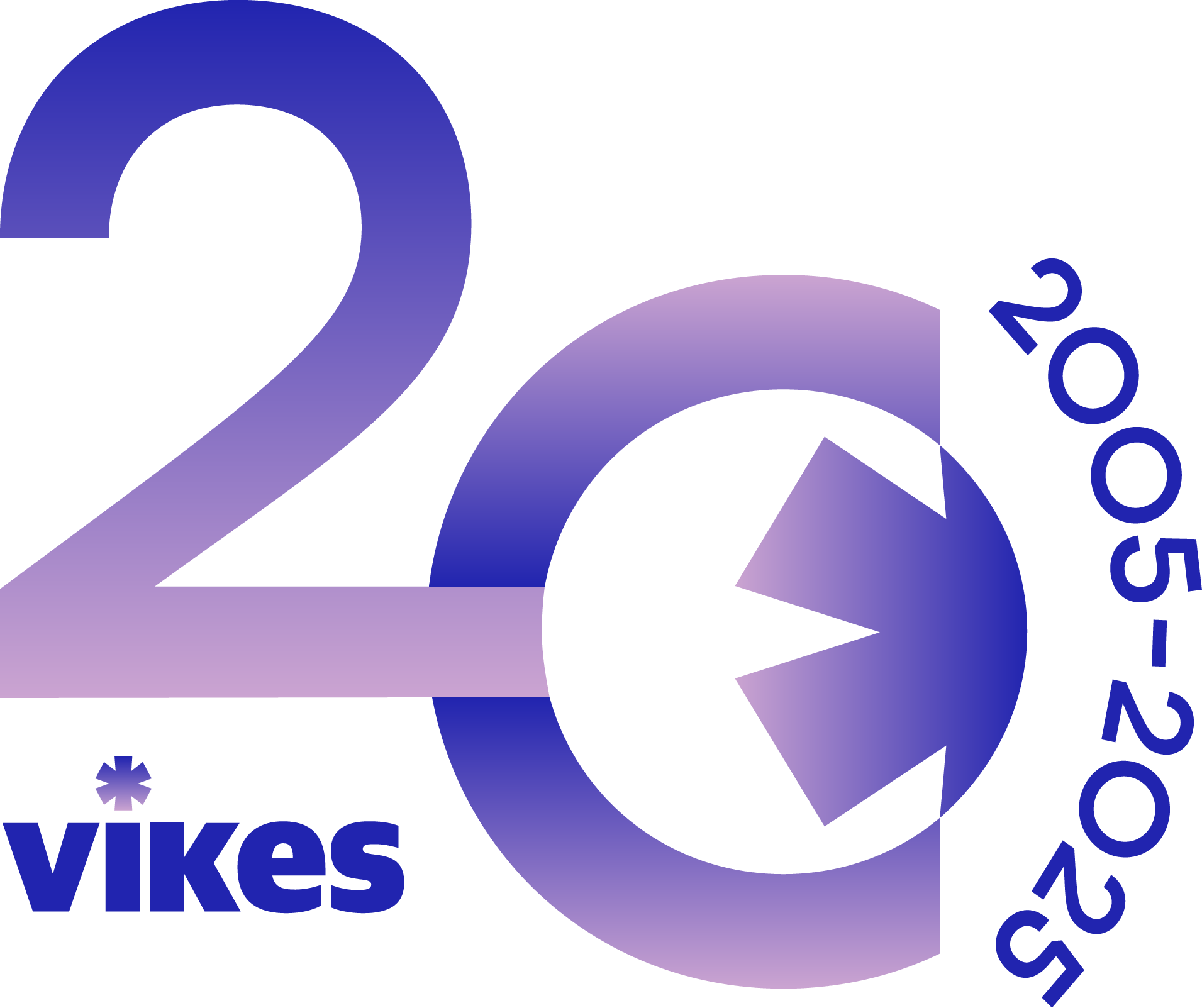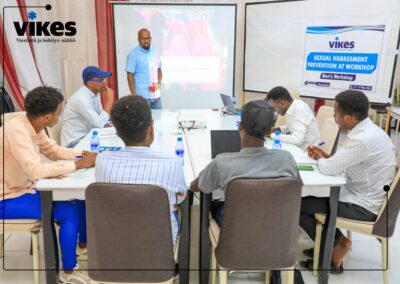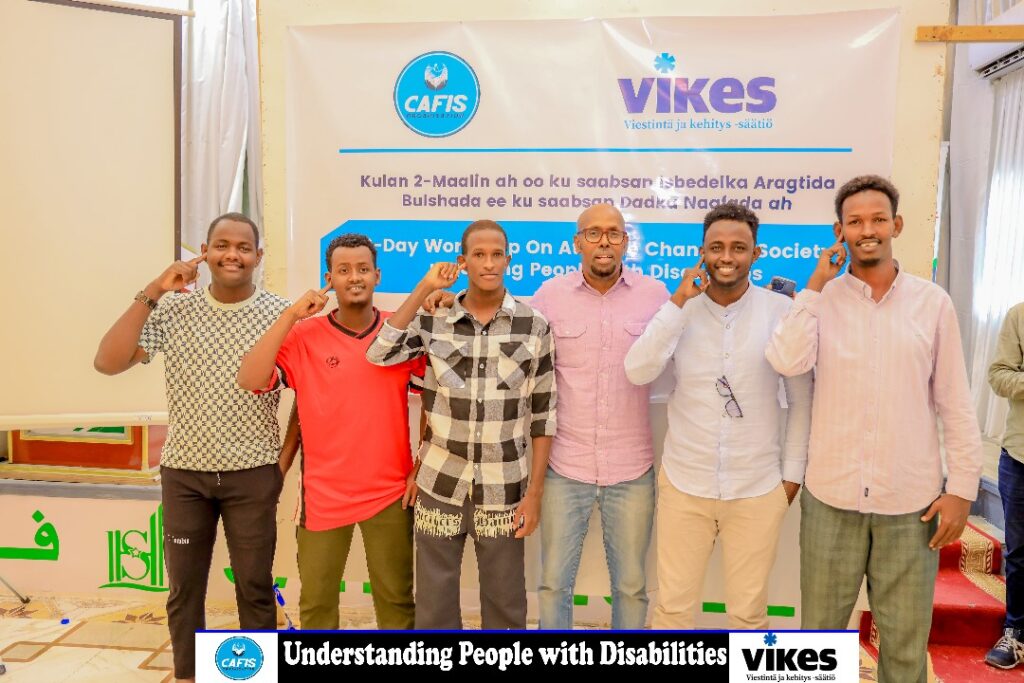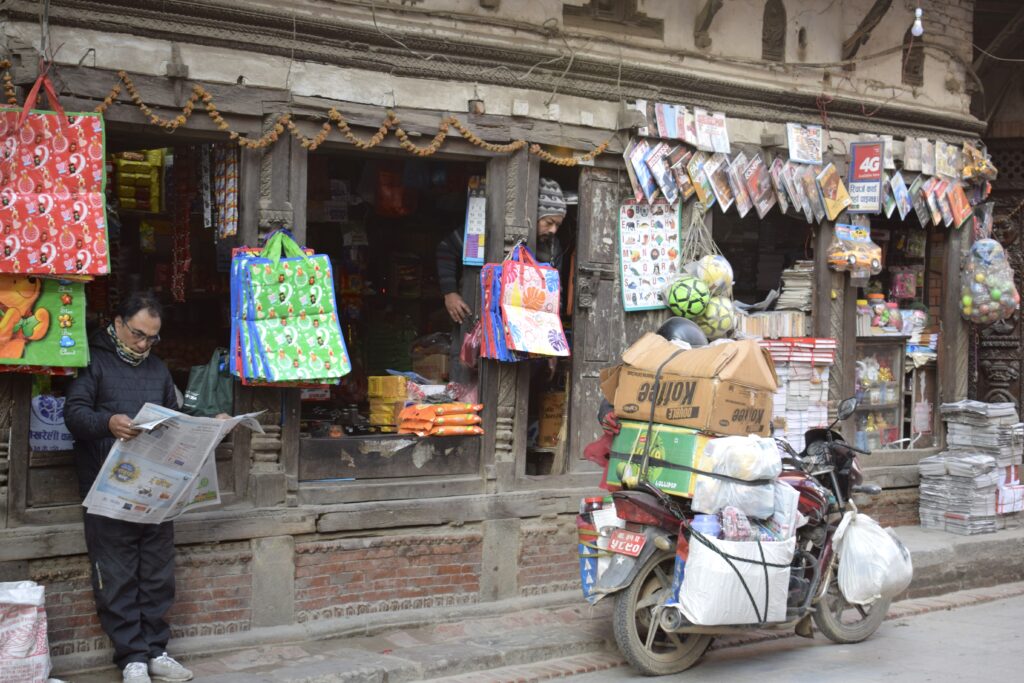In Somalia, traditional gender roles and entrenched cultural practices often create barriers to women’s career development and access to leadership positions
In Somalia, women’s career development and advancement to positions of social power are hampered by societal expectations of women’s role as breadwinners. This is also the case in the media sector, which is why training men on gender issues can be seen as an important step towards a more inclusive working life for women.
Vikes expert Wali Hashi organised a four-day workshop for key media professionals in Dhusamareb in May. The workshops were planned in collaboration with the Finnish organisation Miessakit ry.
Media professionals took part in discussions on the structural and cultural challenges that perpetuate and reproduce inequalities in media work. The case studies used in the workshops shed light on sexual harassment experienced by women on a concrete level, in addition to understanding on women’s experiences in the workplace was deepened by inviting two experienced women journalists to join the debate.
“The aim of the workshop was to promote a more inclusive and fairer media landscape by addressing the root causes of gender discrimination and harassment”, Wali summarises.
The discussions provided an opportunity for the men to reflect on their roles in preventing or perpetuating sexual harassment of women and gender-based abuse of power in the media.
The workshops raised awareness, produced concrete changes, enabled open dialogue and strengthened commitment to change
The outcome of the workshops can be summarised in four main changes:
1. Raising awareness and knowledge
The workshop succeeded in raising awareness about male domination and sexual harassment in the workplace. Discussions and exercises helped participants to understand the different forms of harassment and the cultural factors that influence it. In particular, the discussions with women helped them to understand the unique challenges faced by women.
2. Delivering concrete change
Many participants took concrete steps to promote gender equality and prevent sexual harassment in their workplaces during the workshop. Concrete steps included implementing gender policies, training and engaging staff in new practices, discussing the issue with staff and developing private spaces for women.
3. Encouraging open dialogue
The workshop promoted an open dialogue on sensitive and taboo subjects. Participants had frank discussions about barriers to equality and the impact of sexual harassment on women’s well-being at work. The involvement of women journalists in particular brought valuable perspectives, increased understanding of women’s experiences and encouraged male participants to reflect on their role in promoting a safer space.
4. Commitment to continuous change
Participants committed themselves to promoting the development initiated in their workplaces, and identified the need for external support to achieve long-term goals. The workshops increased the understanding that achieving gender equality and eradicating sexual harassment requires long-term and close cooperation.
The work of Vikes and Miesakit will be welcomed in Dhusamareb in the future too
The workshops developed concrete tools for everyday life to achieve the jointly shared goals. Participants called for more training and awareness-raising to enable women’s equal participation in working life.
“Participants requested that media organisations work with Vikes and other stakeholders to organise workshops and seminars to raise awareness and build the capacity of journalists and media managers”, says Wali Hashi.
“They suggested that Vikes and other stakeholders provide ongoing assistance to media organisations in Dhusamareb and Galmudug. Especially for those organisations with limited expertise and funding.” , Wali concludes.



